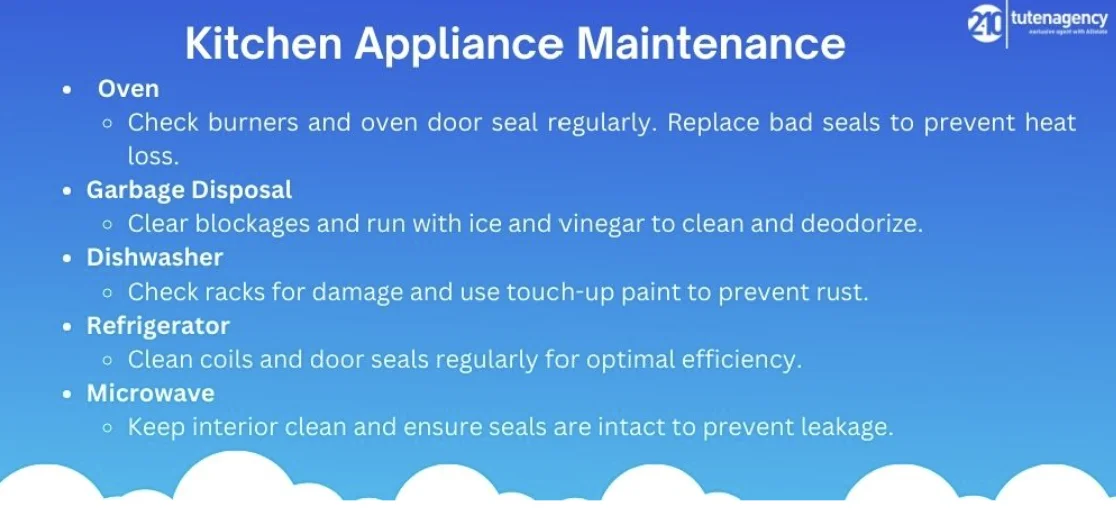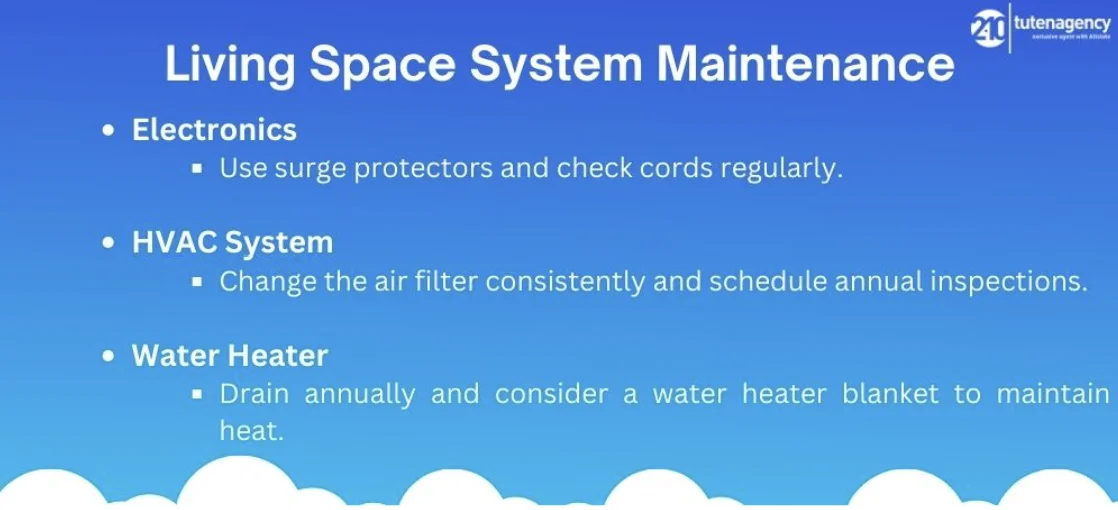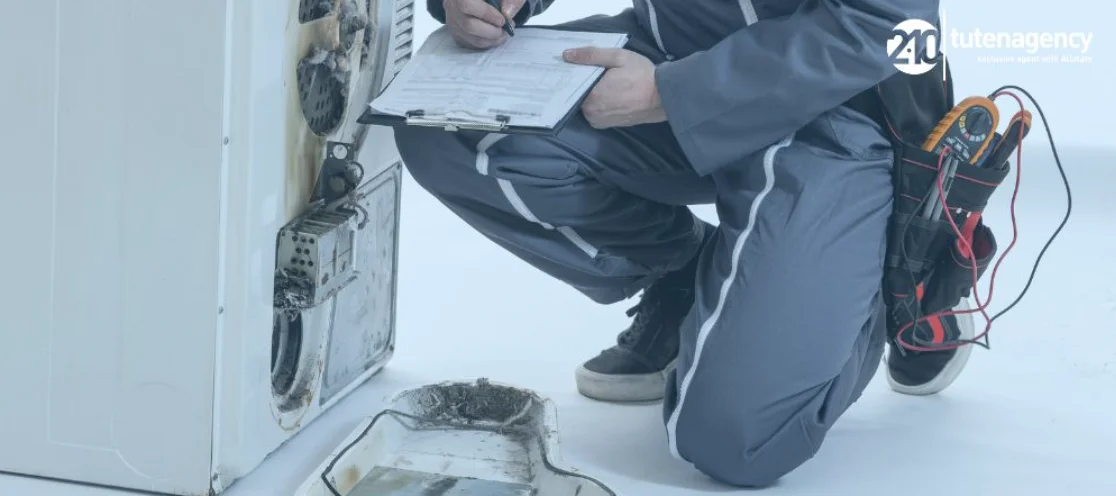Maintaining your home appliances regularly is as crucial as servicing your car or visiting the dentist for check-ups. It helps prevent unexpected breakdowns and expensive repairs. This guide will provide practical steps to keep your appliances in optimal condition, helping you avoid unforeseen issues and maintain smooth operation in your home.
Appliance Maintenance Strategies
There are several ways to approach appliance maintenance. It is helpful to tackle this task by going from room to room or dealing with one type of appliance at a time. Alternatively, schedule maintenance for one or two appliances each month or week, depending on your availability. Scheduling regular maintenance prolongs the lifespan of your appliances but also minimizes the need for urgent repair calls when they break down unexpectedly.
Kitchen Appliance Maintenance
Kitchen appliances are vital for daily activities, so keeping them in good condition is crucial. Here’s how to maintain some of the common ones:
- Oven: Refer to the owner’s manual for specific maintenance recommendations. Regularly check the burners to ensure they light up properly and evenly. Also, inspect the oven door seal. A bad seal can lead to heat loss, increase your utility bills, and affect the quality of food cooking. If the seal is broken or leaking, it should be replaced.
- Garbage Disposal: To avoid clogs and ensure the disposal runs smoothly, check for blockages and clear them with tongs. Then, run the disposal with a mix of ice cubes and salt, vinegar, or even frozen citrus peels to clean and deodorize it.
- Dishwasher: Follow the manufacturer’s instructions for cleaning. Check the racks regularly for chips and repair them with special appliance touch-up paint to prevent rust and further damage.
- Refrigerator: Follow the manufacturer’s guidelines for keeping the interior and exterior clean. Clean the coils and door seals regularly to ensure the fridge operates efficiently and maintains temperature.
- Microwave: Maintain cleanliness and regularly check the interior to ensure that the seals and coating are intact to avoid any leakage of microwaves.

Laundry Appliance Maintenance
- Washing Machine: Examine the hoses for any signs of deterioration or damage that could result in leaks or flooding. It would help to replace the hoses every five years or as directed in your owner’s manual.
- Dryer: After each use, clean out the lint filter. Also, periodically check and clean the vent according to the manufacturer’s guidance. This helps your dryer work better and prevents potential fire hazards.
Living Space System Maintenance
- Electronics: Use surge protectors to protect your electronics from sudden power surges. Additionally, regularly check electrical cords for damage and follow the manufacturer’s recommendations for cleaning your electronic devices.
- HVAC System: It’s vital to change the air filter consistently to ensure your heating, ventilation, and air conditioning system operates at its best. Furthermore, it’s recommended that you schedule an annual inspection and servicing of your HVAC system by a professional, or as frequently as the manufacturer advises, to identify and fix any potential problems.
- Water Heater: It’s important to drain your water heater once a year to avoid the accumulation of minerals that can reduce its efficiency. Additionally, wrapping it in a water heater blanket can enhance its efficiency by helping to maintain the heat.

Understanding Home Appliance Insurance
Homeowners insurance typically does not cover appliances that fail due to wear and tear. However, appliance protection plans or home warranties might be beneficial if your appliance breaks down. These plans can offer peace of mind by covering the cost of repairs or replacements not covered by standard homeowners insurance. Before purchasing, compare what different plans cover and consider your appliances’ ages and conditions.
Overview
Consistent maintenance is crucial for running your home appliances efficiently and extending their lifespan. This guide has outlined simple steps for keeping your appliances in top shape, which can help you avoid expensive repairs later on. By being proactive about appliance maintenance, you can ensure your home operates seamlessly.
Take some time today to review your appliance manuals and schedule maintenance reminders. A bit of effort now could result in substantial savings and fewer problems in the future.
FAQs
What simple maintenance tasks can I do myself at home?
Basic tasks include cleaning filters, checking and replacing seals, unclogging vents, and inspecting cords and connections. Always refer to your appliance’s manual for guidance specific to your model.
How do I know if an appliance is too old to be worth maintaining?
Consider the cost of repairs versus the cost of a new appliance. If repairs cost more than half the price of a new model, or if the appliance is near or beyond its typical lifespan, it might be more cost-effective to replace it.
What should I include in a home appliance maintenance checklist?
A comprehensive checklist would include cleaning and inspecting all major appliances, checking electrical connections, updating any software (for smart appliances), and scheduling professional maintenance where necessary.
How do I dispose of appliances that are no longer repairable?
Contact local waste management services to inquire about appliance recycling programs, or consider donating to organizations that accept used appliances for refurbishment.
Get the right coverage for your home with tutenagency
New tutenagency customers?
Quote homeowners insurance online or call (334) 502-5111 to insure your home.
Legal Disclaimer: ADVERTISING MATERIAL ONLY. Do not rely on this site or this article for legal or financial advice. The information provided on 210agency.com is strictly for educational purposes and to provide you with general educational information. Since state laws and financial regulations are subject to change, please schedule an appointment with an attorney or qualified financial advisor in your area to further discuss your personal situation. This public information is neither intended to, nor will it, create an attorney-client or financial representative relationship.

